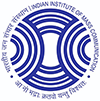IIMC
Mass Communication has emerged as a major area of interest and has immensely contributed to the development & empowerment of society. As an academic discipline, it has rapidly acquired importance and become a major attraction for students. The information technology revolution has significantly contributed to the expansion of mass media. It has also posed major challenges for students, teachers and practitioners of mass media. The rapidly evolving technology scenario is changing the very complexion of the discipline in a manner unknown to any other area of academic activity. It is a challenge which we accept as an essential part of life at IIMC
IIMC considers communication as an imperative for development and is committed to serving society by providing world class teaching, training and research, thus preparing students to take on the challenges of a highly competitive world. IIMC training programmes have been tailored to meet the needs of developing countries and this is what makes IIMC different from other centres of mass communication training in this country and elsewhere. This also gives a different identity and character to our alumni.
IIMC enjoys pride of place in mass communication education, training and research. This is also reflected in various evaluation studies undertaken by media and professional bodies year after year
Over the past decade, IIMC has expanded its academic activities and started a number of specialised courses to meet the manpower requirements of the rapidly expanding media and communication industry. IIMC also makes a concerted effort to constantly innovate its programmes in order to meet the challenges thrown up by developments in the industry. The syllabi are reviewed every year to make changes and suitable modifications to make them relevant to the needs of the industry
The IIMC Society, an autonomous body registered under the Societies Registration Act 1867, runs the Institute. It is funded by the Government of India through the Ministry of Information and Broadcasting, Govt. of India. The Institute has a Governing Body, the Executive Council, headed by a Chairman, with the Director General of the Institute, representatives of the faculty and eminent media persons as members
Inaugurated on August 17, 1965, by the then Minister for Information and Broadcasting, Smt. Indira Gandhi, the Institute started with a small staff, including two consultants from UNESCO. In the first few years, the Institute organised training courses mainly for Central Information Service Officers and undertook research studies on a modest scale. Then, in 1969, a major international training programme, the Postgraduate Diploma Course in Journalism for Developing Countries, for middle level working journalists from Afro-Asian countries, was started. A number of specialised short courses of one week to three months’ duration were subsequently started by the Institute to meet the training needs of communication professionals working in various media/publicity outfits of the central/state governments and public sector organisations. Over the years, IIMC has expanded and now offers regular Post-graduate Diploma Courses
Since IIMC’s training programmes and alumni have made a mark, there have been demands to open more centres of the Institute. A centre was opened at Dhenkanal, Orissa, in 1993 to cater to the demands of the eastern region. Post-graduate Diploma Courses in Journalism in English and Oriya are being offered at the Dhenkanal centre. Subsequently, two more centres of the Institute, in the western and northeastern regions were opened at Amravati in Maharashtra and at Aizawl in Mizoram from the academic year 2011-12. Two further centres have been added at Jammu in J&K and at Kottayam in Kerala from the academic year 2012-13.

